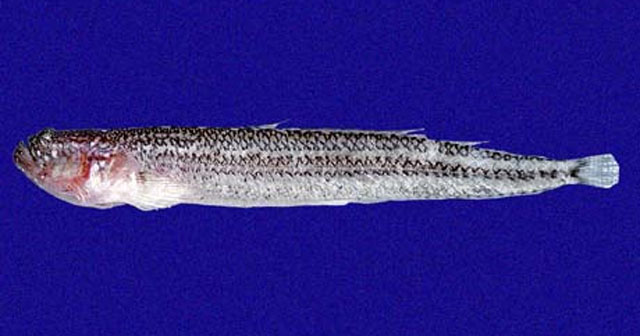| Dactyloscopidae (Sand stargazers) |
| 7.57 cm SL (male/unsexed) |
|
demersal; marine; depth range 15 - 22 m |
| Eastern Pacific Ocean from Nicaragua to Ecuador. |
|
Dactyloscopus fimbriatus is distinguished from Dactyloscopus elongatus
by several features: including number of upper lip fimbriae 15-19, mean = 17.4 (vs. 13-17, mean = 15.0); number of segmented anal-fin rays 36-39, modally 37 (vs. 38-41, modally 39); number of preopercular canal pores mean = 14.8 (vs. 8.6); some body proportions; coloration with distinct markings (vs. weak to absent) (Ref. 82814). |
|
|
Least Concern (LC); Date assessed: 25 May 2007 Ref. (130435)
|
| harmless |
Source and more info: www.fishbase.org. For personal, classroom, and other internal use only. Not for publication.
